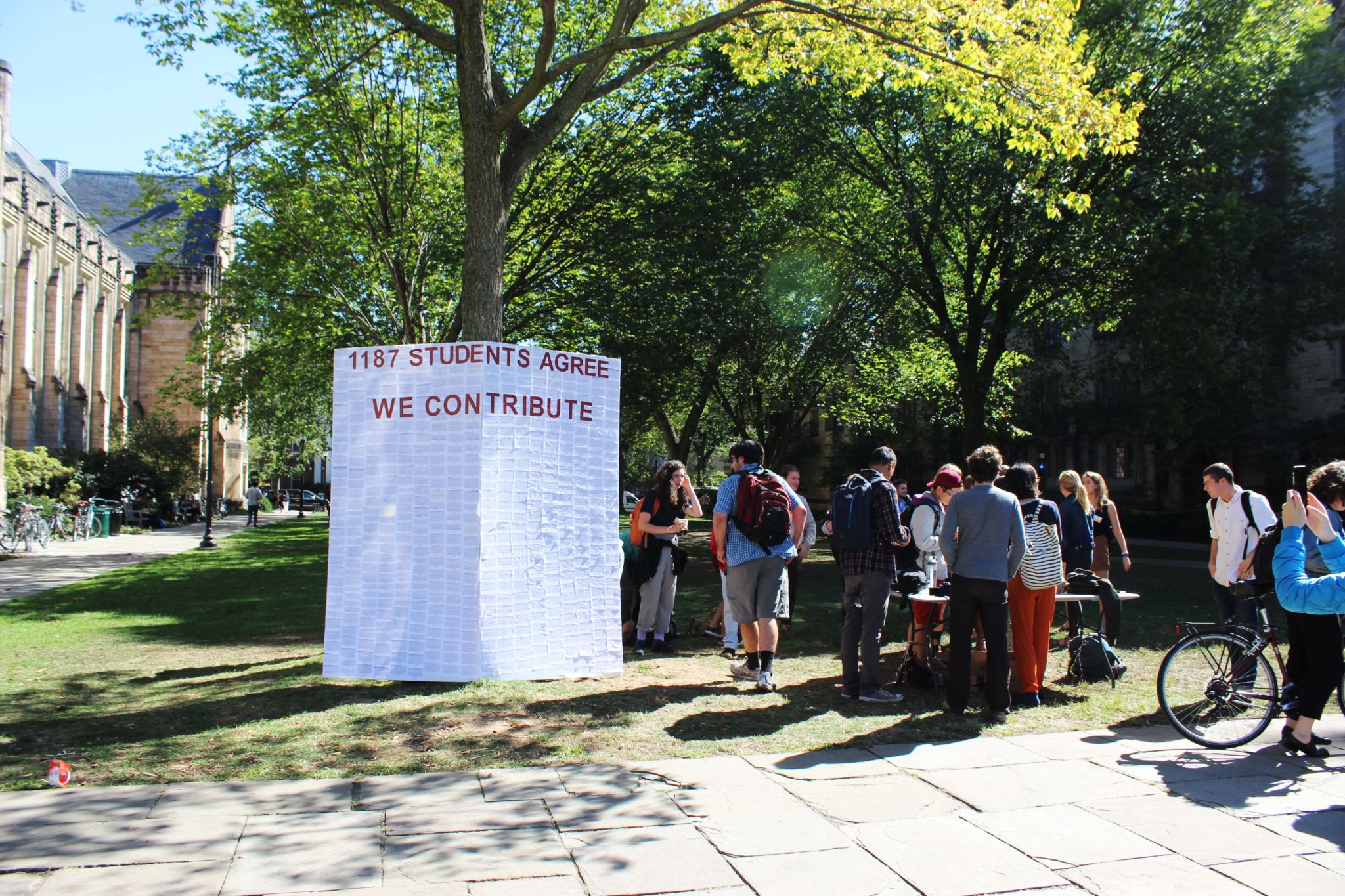
As student activists continue to push for the elimination of the student effort, the Yale administration finds itself in a precarious spot: Give in to students’ calls for its elimination or risk angering a broad contingent of alumni whose donations to financial aid are instrumental in keeping Yale affordable.
According to a News’ survey distributed this fall, 78 percent of student respondents said they were invested or very invested in the elimination of the student effort, the yearly sum that students on financial aid must contribute to their educations totaling $5,950 for most students. However, there seems to be less consensus on the side of alumni, especially older alumni, with regard to eliminating the student effort, Vice President of Yale Alumni Affairs and Development Joan O’Neill said.
In an interview with the News, O’Neill explained that the elimination of the student effort would be a hard message to sell to many of the school’s donors. Many alumni donors who have established major scholarship funds were on financial aid during their time at Yale, she said, and they are not convinced by the objections raised by student activists.
“[The elimination] would make it harder for us to keep raising more and more money for financial aid,” O’Neill said. “[Alumni donors who received financial aid] do not find the argument of not working appealing. By and large, they think that a little work is not a challenge. They feel like they don’t want people to have a different experience, but they did not look back on the fact they had to work at Yale as a deterrent.”
The campus debate on the student effort expectation dates back to at least 2010, when many students began to note a substantial rise in costs of attendance for those on financial aid. One activist group, Students Unite Now, has held numerous rallies in the last year, criticizing the University’s financial requirement for creating “two Yales” — one experience for wealthier students and another for those less well-off.
The total student effort expectation is composed of two amounts: Income earned from an on-campus job during the academic year and earnings from a summertime job. Student critics of the policy argue that holding an on-campus job bars students from participating in time-intensive extracurriculars or taking up unpaid summer internships.
However, while many alumni donors want to ensure the students are expected to contribute a reasonable amount to their educations, they consider their on-campus work requirements to have been part of their Yale experiences, O’Neill said.
Brian Trotier ’77, an alumni donor who took out loans and worked during his time at Yale to fund his education, said the term-time requirement should stay, but the summer contribution should be handled more flexibly than it is at present.
“You should not be punished for choosing to take an unpaid internship over the summer,” Trotier said. “I think it is a conscious decision you are deciding to do in the interest of your graduate education opportunities or your career opportunities. You should be able work to carve out an exception.”
Trotier argued for a way for students pursuing unpaid internships, especially in the sciences, to petition to have the University cover the summer portion of the student effort on a case-by-case basis.
However, Trotier said retaining the term-time employment requirement for students on aid would help teach recipients the same time-management skills that he gained from working in college.
Randy Nelson ’85, former head of the board of directors of the Yale Alumni Fund — which provides the school unrestricted current-use funding, much of which goes towards financial aid spending — said he opposed the elimination of student effort.
Still, although Nelson said complete elimination of the student effort would not be a good policy, he believed students should be able to apply for relief on a case-by-case basis. According to Nelson, such exceptions might be made for students on unpaid fellowships over the summer.
A major donor himself, Nelson has supported the Nathan Hale Scholars program and endowed two scholarship funds, one for general undergraduate studies and the other supporting summer study.
Andrew Wallach ’80, who was not on financial aid at Yale and who has also given significant donations to Yale over the years to fund undergraduate and graduate school scholarships, agreed with Nelson, saying that student effort encourages alumni to continue giving.
Wallach said that during his time at Yale, the term-time portion of the student effort was not a controversial topic, but added that the challenges lodged by student activists required serious attention.
While Nelson said he understood students’ criticisms of the term-time component of the student effort, he said the student effort does not create a significant divide between students on financial aid and those who aren’t.
Nelson, who was not on financial aid at Yale, said this minor class division between students on campus who worked and did not work existed even during his time at Yale.
Still, he acknowledged that Yale has changed greatly since his time. In particular, Nelson noted the changes in the intensity of academics and extracurriculars on campus.
“I think that there are a lot of pressing needs in our nation right now though,” Nelson said. “We have major issues of growing inequality. Donors like myself feel a duty and obligation of supporting the institution that contributed to our success, but at the same time, we feel a unique sense of duty to support other communities that we are a part of.”







